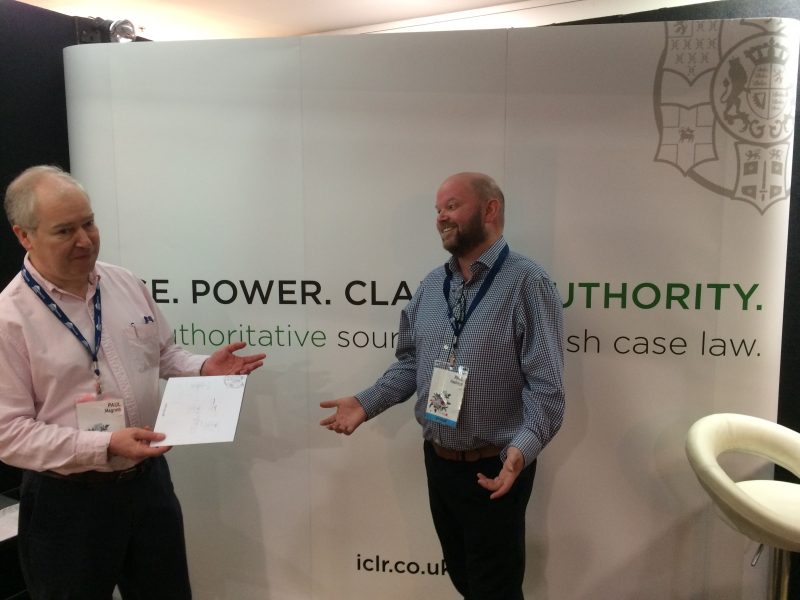Weekly Notes: legal news from ICLR – 30 April 2018
This week’s roundup comes from Darwin, Australia, where ICLR is sponsoring the Australian Law Librarians’ Association biennial conference, #ALLA2018. We’ve encountered warm weather, cold beer, glorious sunsets and snapping crocodiles – but no law librarians, so far. The conference proper starts on 2 May, and we’ll bring you more news about it in due course.… Continue reading

This week’s roundup comes from Darwin, Australia, where ICLR is sponsoring the Australian Law Librarians’ Association biennial conference, #ALLA2018. We’ve encountered warm weather, cold beer, glorious sunsets and snapping crocodiles – but no law librarians, so far. The conference proper starts on 2 May, and we’ll bring you more news about it in due course. In the meantime, here’s some other legal news and commentary.
Immigration
Rudd resigns – Windrushed from office
The Secretary of State for the Home Department, Amber Rudd, resigned from office and was replaced by Sajid Javid (formerly Communities Secretary). Rudd’s position appears to have become untenable after it emerged, in the wake of the Windrush scandal*, about which she publicly claimed to be distressed, that she had not only perpetuated her department’s policy of ‘hostile environment’ for immigrants, inherited from her predecessor (Theresa May), but had known more about targets for deportation than she had previously let on. As the BBC put it:
“The final nail in her coffin was when her claim to the Commons that she was not aware of the targets was contradicted not only by a memo she had been sent by a top Home Office official, published by the Guardian, but also a letter Ms Rudd herself sent to the prime minister setting out ‘ambitious but deliverable’ deportation targets.”
See BBC, Amber Rudd resigns: the political highs and lows
*For a good explanation of the Windrush scandal, see, by Nick Nason, via Free Movement: Windrush children: why Commonwealth citizens are being denied immigration status.
For more on Labour’s involvement and responsibility for the hostile environment, see, by Alan Richards, How Labour opened hostilities against the Windrush generation
Although in some other respects, Rudd was a good Home Secretary – steering her department through ghastly terrorist outrages during her first year – and as a leading Remainer represented a worthy counterbalance to the pro-Brexiteers in the cabinet, she seems to have been illiberal on immigration from the start. At the Conservative Conference in October 2016, soon after being promoted to her post, she drew widespread ire with her speech suggesting that businesses could be forced to publish figures showing how many foreign workers they employed, a policy some felt uncomfortably reminiscent of the fascist race laws of the 1930s. But whatever her failings as a minister, her loyalty to her leader, and ultimately the person many consider responsible for her downfall, cannot be faulted.
Moreover, there is some doubt as to whether the so-called ‘hostile environment’ can possibly be confined to immigration policies or even the Home Office as a department. There have many policies, justified in the name of austerity, which have been implemented only on the back of hostility to one group or another. In the case of legal aid cuts, it was the supposedly ‘fat cat’ lawyers. In the case of Brexit, it was the judiciary. But basically anyone who stands in the way of government policy is now labelled an enemy of the people. Stalin and Mao would have been proud.
Crime
Review of Parole Board
The Ministry of Justice has published the Review of the law, policy and procedure relating to Parole Board decisions (Cm 9611 ) which David Gauke, as the newly appointed Lord Chancellor and Secretary of State for Justice, announced back in January, following the outcry over the board’s decision in the case of notorious rapist John Worboys. (See Weekly Notes – 22 January 2018.)
The opening paragraph sums up the critical issue in stark, almost journalistic terms:
“Justice must not only be done; it must be seen to be done. Open justice is an important principle of our justice system. However, under the current law, the policies and procedures of the Parole Board mean decisions are taken behind closed doors and are shrouded in secrecy.”
This is similar to the language used by the media to criticise the procedure in the family courts and Court of Protection, both of which have been opened up considerably under the presidency of Sir James Munby, who we heard this week is being replaced, on his retirement in July, by Sir Andrew McFarlane.
In the same way, the Review explains how measures will be taken to make the Parole Board more transparent. First, the procedural rules will be changed to remove the blanket ban on disclosing information about the board’s decision making process. Secondly, there will be a judge-led reconsideration process to enable the board’s decisions to be challenged by those affected by them. A consultation about this has been launched. Thirdly, changes will be made to the way the board’s decisions are communicated to victims.
Family
Guidance on capacity and finance
Guidance has been produced by the Family Justice Council to assist judges in the Family Court to resolve mental capacity issues concerning parties to family law proceedings. Designed to be practical and accessible, it will point the judge to key rules and statutory provisions. Lawyers instructed in family proceedings may also find this guidance valuable.
Guidance on the Capacity to Litigate in Proceedings Involving Children – April 2018
The FJC have also issued the second edition of their Guidance on Financial Needs on Divorce
Intellectual Property
Unified Patent Court Agreement ratified
The UK has ratified the Unified Patent Court Agreement that enables a single judgment on patent disputes across its contracting states. According to the announcement from the UK IPO:
“The Agreement on the Unified Patent Court (UPC) is an international treaty. The international court will have jurisdiction over patent disputes across its contracting states.
It will deliver a single judgment in cross-border disputes between private parties over patents granted under the current intergovernmental system.
This system is administered by the European Patent Office, who are responsible for granting future Unitary Patents.”
However:
“The unique nature of the proposed court means that the UK’s future relationship with the Unified Patent Court will be subject to negotiation with European partners as we leave the EU.”
#ALLA2018
Now about that conference. ICLR is a gold sponsor, and is being represented by Paul Magrath, Head of Product Development, and Paul Hastings, Account Manager. You will find us at Stand 7 in the exhibitors hall. Do come and ask us all about ICLR.3, the new do-it-all caselaw research platform we launched last year and are constantly updating and improving.
Here we are at the stand.

That’s it for now. We’ll post more about the conference in due course. In the meantime, thank you for reading… and keep those tweets coming.
This post was written by Paul Magrath, Head of Product Development and Online Content. It does not necessarily represent the opinions of ICLR as an organisation.